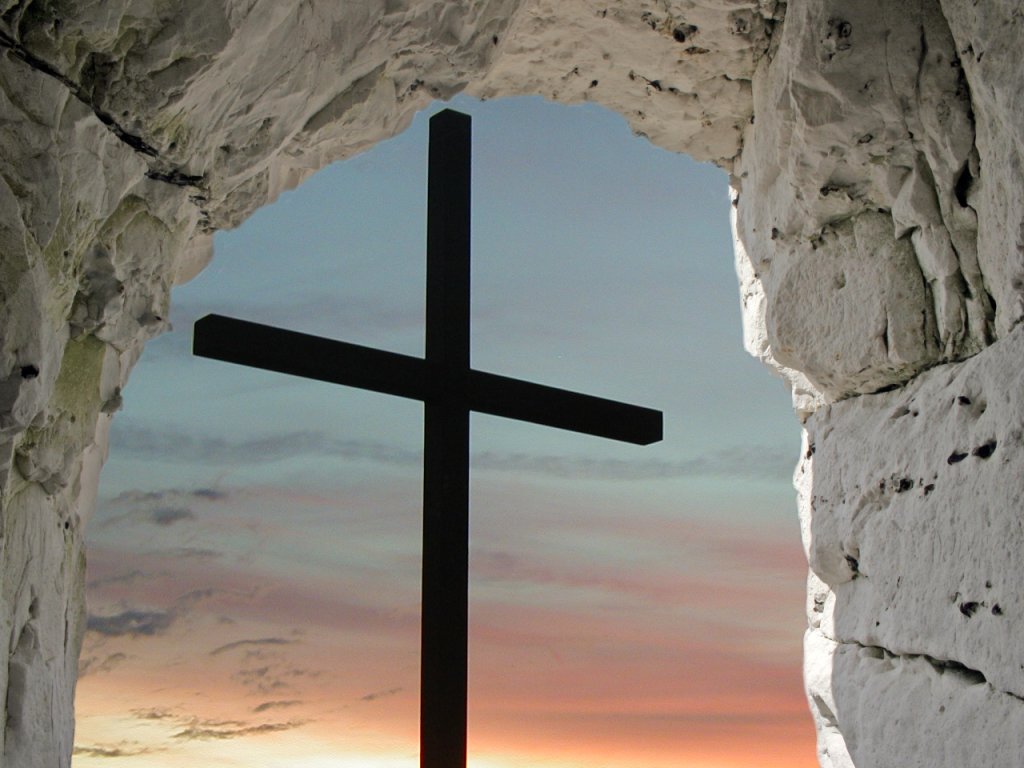Entries in The Cross (5)
Blinded by Beauty
 Thursday, November 13, 2014 at 09:25AM
Thursday, November 13, 2014 at 09:25AM  Once there was a man who could not see beyond his wife’s great beauty. And beautiful she was: deep-set eyes, high cheekbones, porcelain skin, rich red hair, and the picture of health. Yet she was more than this. She was kind and gentle, strong and determined, insightful and wise, but these qualities he did not see. Her manner of life was more beautiful still. She moved with grace between the roles of woman, wife, mother, and friend. What’s more, she possessed the rare ability to teach and encourage others in all these skills. But he was blind.
Once there was a man who could not see beyond his wife’s great beauty. And beautiful she was: deep-set eyes, high cheekbones, porcelain skin, rich red hair, and the picture of health. Yet she was more than this. She was kind and gentle, strong and determined, insightful and wise, but these qualities he did not see. Her manner of life was more beautiful still. She moved with grace between the roles of woman, wife, mother, and friend. What’s more, she possessed the rare ability to teach and encourage others in all these skills. But he was blind.
“I’m the luckiest man in the world,” her husband said, and even though he was indeed correct, he saw a mere fraction of his good fortune. Blinded by her beauty, he was insensible to the thousand other values she possessed.
Eventually he grew old and died: happy and ignorant of his true wealth.
What if we are that man? What if we live in the company of beauty—and grace, and wisdom, and strength, and vision enough for a lifetime and beyond, but we receive only a portion of our good fortune? What if, in Christ, we are partakers in the divine nature but we stop at the beauty of the cross?
We love the cross because it is the place forgiveness. We love the cross because Jesus paid a debt he did not owe, and paid a horrid price we could never ourselves pay. Because of the cross we live forgiven and free, our sin is washed away. What if we are blinded by its beauty?
The work of the cross is complete. Through its divine exchange we will live with the Father forever.
But Jesus was more than the cross. He did more than die. His manner of life was beautiful as well. He is kind and gentle, strong and determined, insightful and wise. What’s more, he has the rare ability to teach us all these skills. Jesus is more than the cross. His life is a gift to us as well.
If we see the cross as the ultimate expression of the Lord’s purpose we limit his mission to forgiveness. If we see ourselves as only recipients of his ministry, we stop at the cross. His mission, his aim, his gospel began before the cross, and extended beyond. What a blessed span are the days between Good Friday and Easter, yet it took Jesus more than a weekend to accomplish his work. The cross is a great gift, yet it is more, it is a portal—an entry-point into a new world, a new kind of life.
To become a child of God everyone must come to the cross. There is no other path. But there is beauty beyond the cross; the new life it offers is only the beginning. Can we see more?
Meditation: Why the Cross is Not Enough
 Monday, May 6, 2013 at 11:55AM
Monday, May 6, 2013 at 11:55AM  Christianity without the cross is a sham, but the cross is not enough. You heard me: the cross is not enough. Before the cross came incarnation, and after the cross came resurrection: Jesus modeled all three, and so should we.
Christianity without the cross is a sham, but the cross is not enough. You heard me: the cross is not enough. Before the cross came incarnation, and after the cross came resurrection: Jesus modeled all three, and so should we.
I’ve watched recently as an increasing number of teachers and leaders encourage us to follow Jesus’ example by going to the cross. Our Lord is a model—the model, actually—of self sacrifice and humility. This much is true: he is our example, and he went willingly to the cross. He didn’t miscalculate, he wasn’t blindsided by people or events beyond his control. No one took his life from him: he laid it down freely, and so should we.
Before the cross, however, all of heaven gasped in wonder at the miracle of Incarnation. The Creator become part of creation. He did not stand afar off and offer advice, he became present in his world. He arrived in the usual way for a man, and the most unusual way for God. Nor did he simply drop in for a weekend redemption spree. He lived life to the full and left a record of how we should live. This part of his example required humility and sacrifice as well.
The Apostle Paul tells us the message of the cross is foolishness to those who are perishing. The cross, he says, is a scandal to the religiously minded and ridiculous to the wisdom of this age. The world does not value humility and sacrifice, but they are the calling cards of another realm. Still, Paul did not leave Jesus in the grave, nor did the Father. To win by losing is an oxymoron. But Jesus didn’t win by losing. He won by winning, and the winning came by the resurrection.
Jesus’ example did not end with the agonizing beauty of his tortured death. His final words on the cross were not his final words. He had much more to say, and plenty for us to do. His work beyond the cross required the Father’s intervention in his life, and our work should require no less. Have you ever considered the humility and faith Jesus displayed by placing his future in the Father’s hands? Jesus died in faith, trusting in the Father’s promise of resurrection, but he had no guarantee beyond the love and trust he exhibited that night in Gethsemane. In this, too, we can follow his example. The Spirit of God is hovering and poised to infuse our lives with resurrection empowerment even now.
No witness is complete without these three vital elements: incarnation, sacrifice, and resurrection. Our attempts at ministry are incomplete without the three. We cannot stand far off and offer advice. We cannot follow Jesus without bearing the cross, and we cannot carry on his work without the Father’s intervention. Our tendency, though, is to prefer one of these above the rest. This week’s mediation asks of us: which is our default position, and how can we make room for the other two aspects Jesus modeled?
Monday's Meditation: Grenade!
 Monday, August 22, 2011 at 10:28AM
Monday, August 22, 2011 at 10:28AM Monday's Meditation: Considering the Cross
 Monday, January 24, 2011 at 01:14PM
Monday, January 24, 2011 at 01:14PM Ignoring the Cross
 Thursday, January 20, 2011 at 08:50PM
Thursday, January 20, 2011 at 08:50PM Then he called the crowd to him along with his disciples and said: “Whoever wants to be my disciple must deny themselves and take up their cross and follow me. For whoever wants to save their life will lose it, but whoever loses their life for me and for the gospel will save it. What good is it for someone to gain the whole world, yet forfeit their soul? Or what can anyone give in exchange for their soul? If anyone is ashamed of me and my words in this adulterous and sinful generation, the Son of Man will be ashamed of them when he comes in his Father’s glory with the holy angels.” (Mark 8: 34-38)
- Reject the cross: In which I understand the call, count the cost, and fold before I must pay the price. Better to indulge in religious activities--perhaps even do some good--but remain the master of my fate: build my ministry, increase my readership, secure my future. I don’t think that’s me, but I can imagine pastors, evangelists, and various religious professionals taking this. Then again, when is the last time I fasted? Jesus probably isn’t amused by my standard line, “the only thing I ever got from fasting is skinny.”
- Mortify myself in an attempt to take up the cross: I’m no church historian, but there are plenty of examples of those who believed that by literary imitating the suffering of Jesus they were somehow following his example. It’s true that no one took his life from him: Jesus gave himself to the cross, but I don’t think he intended us to inflicted controlled pain in order to find affinity with him. (But then, after only four days’ reflection, what do I really know?)
- Ignore the cross: I think this is where I’ve been living. Love Jesus? You bet. Worship and Adore? I’m in. Serve him? I’d like to think that’s what I’ve been doing. But with respect to the call to embrace the cross--it’s imagery and reality--I’ve been a no-show. Like the disciples in Ephesus who had never heard of the Holy Spirit, I’m the disciple who’s never seen the cross. And honestly: how could I miss it? The cross is the primary sign of Evangelical Christianity. Who’s ever heard of a church without a cross? (Answer: mine)
- Embrace the cross: Now, I’m just four days into this but it seems to me that Jesus loved the Father, saw what he was doing, and partnered with him. Jesus demonstrated a life of purity and obedience. A life so vivid and compelling that some people followed him and some killed him. A life so loving he was willing to be lifted up in shame in order to rescue those who neither loved him nor understood him. I’d like to learn to live that kind of life.
EDITOR'S NOTE: It's Saturday,and in turning my attention to the cross I came across a Good Friday post from 2009: Still, it's not enough for a discipleship blog. And, gentle readers, I'm still looking for your comments.




